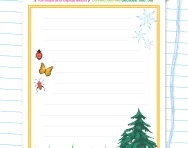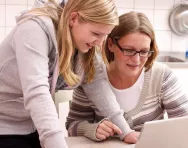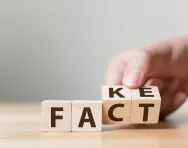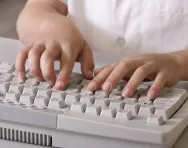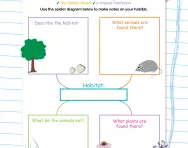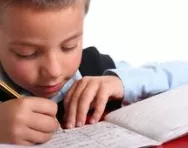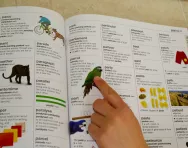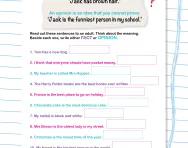Important update from TheSchoolRun
For the past 13 years, TheSchoolRun has been run by a small team of mums working from home, dedicated to providing quality educational resources to primary school parents. Unfortunately, rising supplier costs and falling revenue have made it impossible for us to continue operating, and we’ve had to make the difficult decision to close. The good news: We’ve arranged for another educational provider to take over many of our resources. These will be hosted on a new portal, where the content will be updated and expanded to support your child’s learning.
What this means for subscribers:
- Your subscription is still active, and for now, you can keep using the website as normal — just log in with your usual details to access all our articles and resources*.
- In a few months, all resources will move to the new portal. You’ll continue to have access there until your subscription ends. We’ll send you full details nearer the time.
- As a thank you for your support, we’ll also be sending you 16 primary school eBooks (worth £108.84) to download and keep.
A few changes to be aware of:
- The Learning Journey weekly email has ended, but your child’s plan will still be updated on your dashboard each Monday. Just log in to see the recommended worksheets.
- The 11+ weekly emails have now ended. We sent you all the remaining emails in the series at the end of March — please check your inbox (and spam folder) if you haven’t seen them. You can also follow the full programme here: 11+ Learning Journey.
If you have any questions, please contact us at [email protected]. Thank you for being part of our journey it’s been a privilege to support your family’s learning.
*If you need to reset your password, it will still work as usual. Please check your spam folder if the reset email doesn’t appear in your inbox.
How to help your child develop research skills
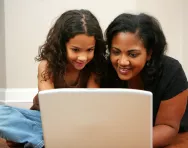
Remember your own school days, when researching a homework project meant going to the library and looking through books to find the facts you needed?
It’s easy to assume that research is a far easier task for today’s children, with the internet at their fingertips. But in reality, the vast amount of information that they have access to can make it harder to find what they need.
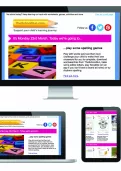
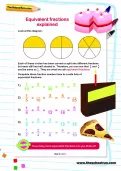
Start a unqiue learning programme!
- Weekly programme for each school year
- Worksheets sent direct to your inbox
- Keeps your child's learning on track
From the start of KS2, you’re likely to find your child is given research-based homework tasks on subjects ranging from the Great Fire of London to Ancient Egypt, and the skills they gain from these projects are vital for their future learning.
‘Once they get to secondary school, children are expected to be able to research things independently, but there’s not always time to teach them how to do it,’ explains Tricia Adams, director of the School Library Association. ‘Once they develop these skills, they’ve got them for life, so the sooner we can start to introduce them, the better.’
How to start researching a topic
Children often leap into research-based projects without stopping to think about what is actually required of them. For example, they might be asked specifically to find out about homes in Saxon times, but end up gathering facts not just about homes, but also about jobs, food, leisure time, and so on. They then either produce a piece of work that doesn’t meet the brief, or end up having to discard all the extraneous info they’ve uncovered.
The first step is to help your child identify what’s actually being asked. Some teachers, particularly in lower KS2, will give children clear prompts, such as a bullet-pointed brief with questions that they have to answer, such as:
- When did the Saxons live?
- What did their houses look like?
- What were they made of?
In this case, encourage your child to read through all of the questions before they even start researching. It can be helpful to give them a sheet of paper for each question so they can write down information in rough as they find it.
Other times, and more commonly in upper KS2, the brief may be more general: ‘Find out how people lived in Saxon times'. In this case, the onus is on your child to think about what they’re being asked to do. Encourage them to plan their work by coming up with subheads or a paragraph plan; this will help focus their mind on the specific areas they need to research.
Researching using the internet
Most kids automatically use the internet as their first (and often only) source of information. ‘There’s a lot of fantastic information out there, but there’s also a lot that’s unhelpful and even inappropriate,’ says Tricia. ‘If your child is going to use the internet for research, the first thing to do is make sure you have really good parental controls in place so they can’t access anything harmful.’
When they’re using the internet for research, there are six key skills that your child needs to develop.
Using the right search terms. ‘Children need to learn that to do a successful search, they need to put the right words into the search box,’ says Tricia. If their wording is too specific, they may not find the information they need, but if it’s too loose, they’ll find too much irrelevant detail. Spelling mistakes can also throw a search off kilter.
One good way to help your child get to grips with using the right search terms is to get them to underline the keywords in the brief they’ve been given: for example, ‘Find out how people lived in Saxon times’. These will often be the words that form the basis of their search.
Sit with your child and demonstrate how using the right search terms can make their research more productive. Get them to look up information using three different terms ranging from the general to the specific, for instance, ‘Saxons’, ‘Saxon life’, and ‘Saxon houses’. The first will throw up way too much information, while the last may be too narrow. This will help them understand the sort of terms they need to use to get to the information they need.
Using search engines. ‘When they’re using the internet for research, children typically go straight to Google, and then use the first two websites that come up,’ Tricia says. ‘The problem is that the top hits are often ad-based or influenced by their past search history, and may not be the best sources of information.’
Tricia recommends encouraging your child to experiment with search engines other than Google. ‘Different search engines use different algorithms, so you won’t necessarily get the same results,’ she explains. ‘Get your child to compare and contrast them with Google, and say which they think is more useful.’
It’s also important to encourage your child to look beyond their first couple of hits, especially as one of these is likely to be Wikipedia, which isn’t always accessible for children, or reliable. Using a website further down the list not only opens the possibility of finding different information, but also means their final piece of work won’t be a carbon copy of everyone else’s.
Assessing reliable and unreliable sources. One of the trickiest parts of using the internet for research is developing an understanding that not all sources are reliable. ‘Being able to tell whether a source is reliable is a real skill, and is something that students are still developing at university level,’ says Tricia.
Talk to your child about good and bad sources of information, and how to tell them apart. For example, the information on websites produced by museums, well-known charities or institutions like the BBC or NHS is likely to be reliable, while those run by lesser known organisations or individuals may not be. ‘Encourage your child to look at the About page, and help them make a judgement about whether the people behind the website are likely to be trustworthy,’ Tricia says.
You can also encourage them to look for other clues that point to a website’s reliability. For example, does it look well designed? Are there spelling mistakes? When was it written?
Cross-checking. Children often skip this stage of research; they simply find the information they think they need, and then move on. But knowing how to cross-check is an important skill as they get older, and helps to confirm whether the information they’ve found is reliable. If two or more websites are saying the same thing, they can be confident that it’s accurate, whereas if they find contradictory information, they need to dig deeper to find out which is right.
Skimming and scanning. Being able to skim-read a piece of information to determine whether it’s going to be useful is an important skill that saves children the effort of reading vast amounts of text in detail, only to discover that it’s not what they need. ‘This is a skill that children develop over time, and they need to be confident readers before it can happen,’ says Tricia.
Taking notes. Your child needs to learn to take the information they’ve found, extract the key facts, and put them into their own words. The finished piece of work is likely to be far better if they take notes, rather than trying to write the final version as they do their research. Encourage them to use pencil and paper, rather than copying and pasting the information from websites; this means they’re more likely to use their own words.
Researching using books
The internet may seem the easiest place for your child to do their research, but this isn’t always the case. ‘The main problem is that the text isn’t often pitched at primary-school level,’ says Tricia. ‘There’s some brilliant information on museum websites, for example, but it’s usually aimed at an adult audience.’
Although using books might seem time-consuming, it can actually be more efficient than wading through the vast amounts of information online. ‘The benefit of books is that they’re focused on the specific topic, so you can find everything in one place,’ Tricia says. ‘It’s also easier to find books that are pitched at the right level: it’s fairly obvious from the vocabulary, typeface and format to tell whether your child has the right book in their hands.’
Some schools have a library where children can either use books in situ or take them home. There may also be a school library service, where schools can borrow books relating to the particular topic the class is studying, although budget cuts have meant that this service has disappeared in some areas.
‘I would also always encourage parents to take their children to the public library, where they can find information that’s tailored to their age group,’ adds Tricia. ‘If you can’t find what you’re looking for, the librarian will always be happy to help.’
Avoiding plagiarism
The idea of a primary school child being pulled up for plagiarism may seem far-fetched, but it’s important that they get used to putting information into their own words. Not only will this avoid them getting into trouble later on in their education, but it also means they’ve understood the information they’ve found, rather than just copying and pasting it.
A good way to explain plagiarism to your child is to get them to do a really good piece of homework, and then say, ‘Right, we’re going to give this to your friend, and they’re going to get all the marks for it.’
‘Children instantly recognise that this isn’t fair, and it’s a brilliantly simple way to demonstrate what plagiarism is, even to very young kids,’ Tricia says.
It’s also a good idea to read through your child’s work, and if there are words or phrases that you suspect they’ve lifted straight from a website or book, ask them what they mean. If they can’t explain it, chances are they’ve copied it, and you can ask them to go back and put it into their own words.
TheSchoolRun recommends some of the best reference books for children as well as offering primary-school-friendly guides to history, geography, science and religion homework topics in the free Homework Gnome section.
